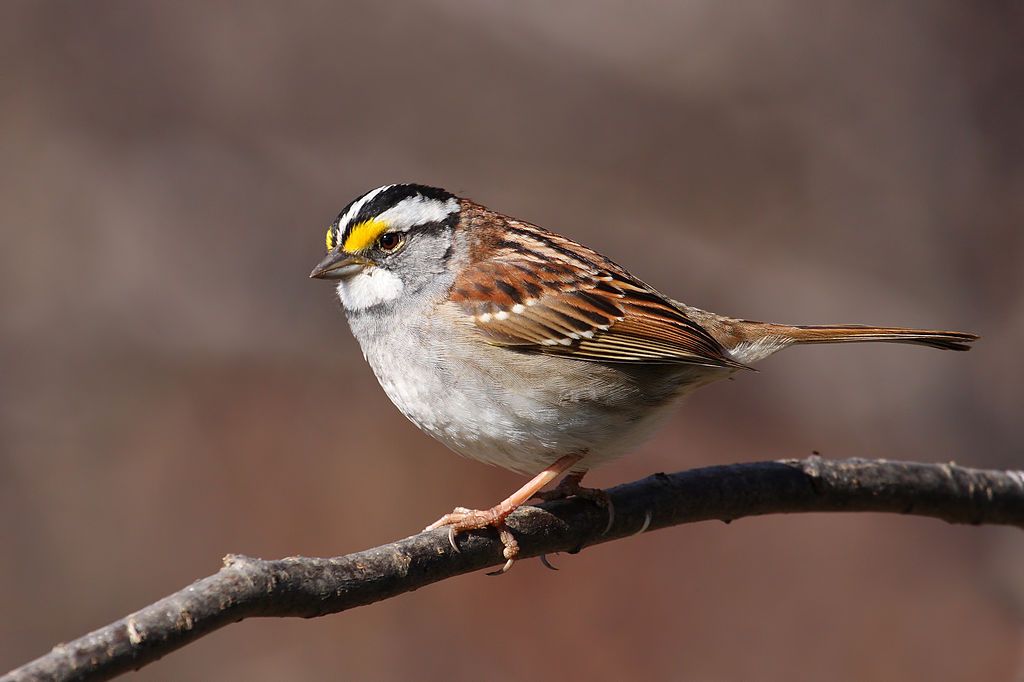
Songbirds are born with the ability to sing but perfect their songs by listening to others. Many learn when immature, usually from their fathers, and then don’t change their tunes. That’s why it was a surprise when Ken Otter and Scott Ramsay discovered that a new song from western Canada is so popular among white-throated sparrows that it’s taking over the country.
White-throated sparrows (Zonotrichia albicollis) learn their songs at 30 to 100 days old and don’t vary them later except for a window in the birds’ second winter when they’re open to new ideas.
Twenty years ago all the birds sang the tune we still hear in the East, “Oh sweet Canada, Canada, Canada.” The end of the song is a triplet of three syllables.
In the early 2000s Otter and Ramsay recorded a new song unique to Prince George, a remote city in northern British Columbia. The birds sang “Oh sweet cana, cana, cana” without the final syllable.
Fast forward 20 years. Otter and Ramsay watched as “Oh sweet cana, cana, cana” moved east and gained traction across Canada. By 2017 the new song was the only one in the west and was sung by half the white-throated sparrows in Ontario.
It spreads during the winter. White-throated sparrows from across Canada spend the winter together in Oklahoma, Arkansas, Kansas and eastern Texas where mature birds demonstrate their favorite tunes.
The new song caught on rapidly with the younger crowd, probably because the ladies prefer it. Who says songbirds can’t change their tunes?
Read more at The Atlantic’s The Birdsong That Took Over North America.
(photo from Wikimedia Commons; click on the caption to see the original. Audio embedded from Xeno Canto)
Fascinating.
Btw, there’s a wealth of information at this link to Cornell’s Handbook of Bird Biology Media Library. Chapter 10 covers Avian Vocal Behavior.
https://academy.allaboutbirds.org/textbook/handbook-chapters/
Thank you, Mark, for the great resource.